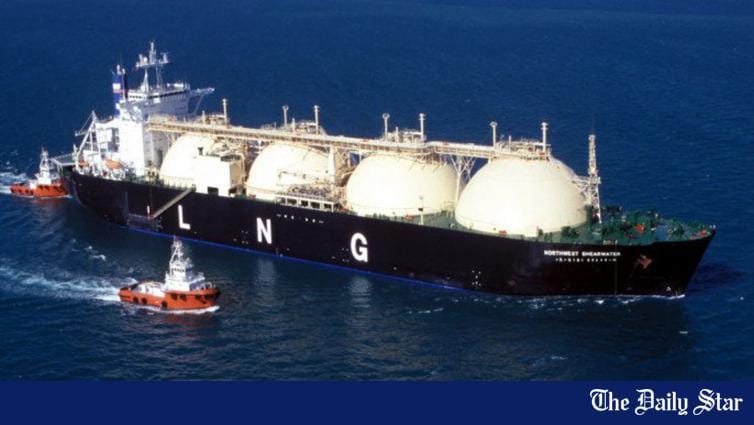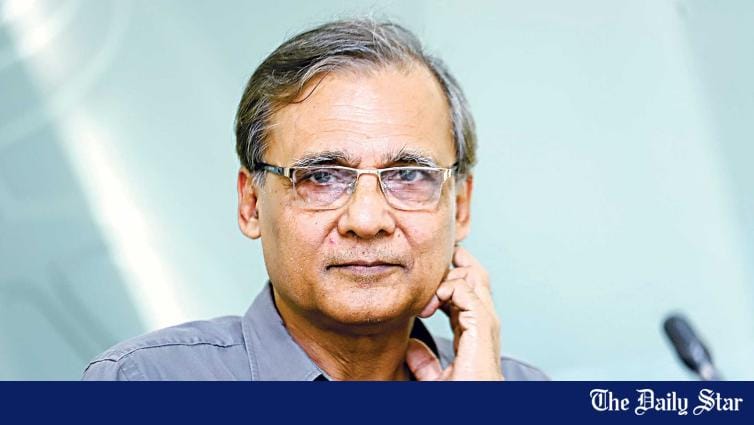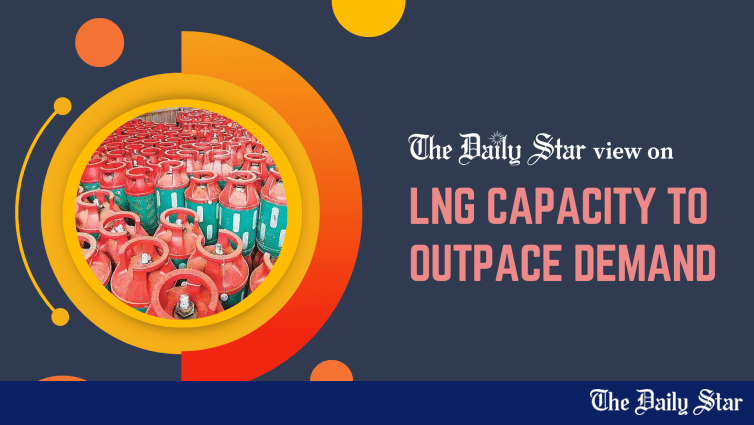Saif
Senior Member
- Joined
- Jan 24, 2024
- Messages
- 16,880
- Likes
- 8,153
- Nation

- Residence

- Axis Group


More power plants than needed
The government is continuing to ramp up the power generation capacity even though the electricity demand did not increase as per projection, putting an additional price burden on consumers, said energy experts.
More power plants than needed
Consumers ultimately bear the brunt for excess capacity, experts say
The government is continuing to ramp up the power generation capacity even though the electricity demand did not increase as per projection, putting an additional price burden on consumers, said energy experts.
In the Power System Master Plan (PSMP) 2016, the electricity demand in 2024 was forecasted to be 20,129 megawatts. In reality, the highest projected demand for electricity this year is 17,800MW.
The power generation capacity at present is 26,844 megawatts.
It means there is an overcapacity of over 9,000 MW excluding the captive power generation capacity (electricity generated at the industries by themselves) and off-grid renewable energy that accounted for another 3,223 MW, according to data from the Bangladesh Power Development Board.
Due to the increased generation capacity, the government needs to spend more than the necessary amount for generation, said Khondaker Golam Moazzem, research director of the Centre for Policy Dialogue.

"To meet the higher generation cost, the government needs to adjust the electricity prices repeatedly -- the consumers are not at fault here," he said.
The higher generation cost is due to capacity payments, a fee that must be paid to the power producers for every idle hour.
Globally, the target for reserve margin, which is the amount of unused available capability of an electric power system (at peak load for a utility system) as a percentage of total capability -- is 20 percent, according to experts.
The PSMP 2016 says that the reserve margin would be brought down to 20 percent by 2025 when the peak demand would be 21,903 MW.
In reality, the reserve margin is more than 35 percent and will increase more in the upcoming days.
"It is true that to make the power supply smooth and healthy certain percentage of reserve margin is essential, but unplanned and aggressive increase in generation could make reserve margin more than optimum limit resulted into extra pressure in the economy of the country," said the PSMP 2016, which was revised in 2018.
Subsequently, it called for a thorough study to ascertain which level of reserve margin is actually required for continuing uninterruptible and reliable power supply to the customers with minimum pressure on the economy.
However, according to the Integrated Energy and Power Master Plan 2023, the follow-up to PSMP 2016, it would not be until 2040 that the reserve capacity will come down to 20 percent.
In the 2030s, the reserve capacity will remain at around 30 percent, it said.
The government has been increasing the capacity without considering the rise in demand, the CPD said in a study last week while presenting a comparative supply-demand picture.
Until 2018, the power generation capacity increased proportionately, but later, the power demand and generation capacity went in different directions, the study said.
Due to the excess capacity, the government needs to keep a good number of power plants idle daily, which is costing the exchequer in capacity payments.
Last fiscal year, the PDB had to pay more than Tk 26,000 crore as capacity payments.
Despite increasing the electricity prices in the first quarter of last year, the PDB reported a loss of Tk 43,539 crore for fiscal 2022-23 while the government allotted a subsidy of Tk 39,534 crore to them, according to a CPD study published last week.
There is a correlation between government subsidy and capacity payments, the CPD study said.
PDB has been incurring losses mainly due to an increase in operating expenses driven by the use of diesel or furnace oil for power generation in rentals and quick rentals alongside a significant amount in capacity payment to independent power producers, Moazzem said.
"The government should reduce the cost of electricity production instead of burdening people with increased tariffs to cut subsidies in the sector," he added.
The power generation cost increased as a result of faulty systems, wrong policy and overcapacity, said M Shamsul Alam, vice-president of Consumers' Association of Bangladesh.
None of the power distribution companies made a loss but the PDB did, he said.
"When the government brought the private power producers into the business, they didn't create any competition. How much money have they spent, how much they are making as profit, nobody knows."
When demand increased by only 3 percent, the government increased the capacity by 12 percent, he said.
"This is injustice," he added.
The government counts many abandoned or old power plants in calculating the capacity, said Mohammad Hossain, director-general of Power Cell.
"It's for showing the government's success at a bigger scale. Ultimately, there is more or less 20 percent reserve capacity, not more than that," he added.
It means there is an overcapacity of over 9,000 MW excluding the captive power generation capacity (electricity generated at the industries by themselves) and off-grid renewable energy that accounted for another 3,223 MW, according to data from the Bangladesh Power Development Board.
Due to the increased generation capacity, the government needs to spend more than the necessary amount for generation, said Khondaker Golam Moazzem, research director of the Centre for Policy Dialogue.
"To meet the higher generation cost, the government needs to adjust the electricity prices repeatedly -- the consumers are not at fault here," he said.
The higher generation cost is due to capacity payments, a fee that must be paid to the power producers for every idle hour.
Globally, the target for reserve margin, which is the amount of unused available capability of an electric power system (at peak load for a utility system) as a percentage of total capability -- is 20 percent, according to experts.
The PSMP 2016 says that the reserve margin would be brought down to 20 percent by 2025 when the peak demand would be 21,903 MW.
In reality, the reserve margin is more than 35 percent and will increase more in the upcoming days.
"It is true that to make the power supply smooth and healthy certain percentage of reserve margin is essential, but unplanned and aggressive increase in generation could make reserve margin more than optimum limit resulted into extra pressure in the economy of the country," said the PSMP 2016, which was revised in 2018.
Subsequently, it called for a thorough study to ascertain which level of reserve margin is actually required for continuing uninterruptible and reliable power supply to the customers with minimum pressure on the economy.
However, according to the Integrated Energy and Power Master Plan 2023, the follow-up to PSMP 2016, it would not be until 2040 that the reserve capacity will come down to 20 percent.
In the 2030s, the reserve capacity will remain at around 30 percent, it said.
The government has been increasing the capacity without considering the rise in demand, the CPD said in a study last week while presenting a comparative supply-demand picture.
Until 2018, the power generation capacity increased proportionately, but later, the power demand and generation capacity went in different directions, the study said.
Due to the excess capacity, the government needs to keep a good number of power plants idle daily, which is costing the exchequer in capacity payments.
Last fiscal year, the PDB had to pay more than Tk 26,000 crore as capacity payments.
Despite increasing the electricity prices in the first quarter of last year, the PDB reported a loss of Tk 43,539 crore for fiscal 2022-23 while the government allotted a subsidy of Tk 39,534 crore to them, according to a CPD study published last week.
There is a correlation between government subsidy and capacity payments, the CPD study said.
PDB has been incurring losses mainly due to an increase in operating expenses driven by the use of diesel or furnace oil for power generation in rentals and quick rentals alongside a significant amount in capacity payment to independent power producers, Moazzem said.
"The government should reduce the cost of electricity production instead of burdening people with increased tariffs to cut subsidies in the sector," he added.
The power generation cost increased as a result of faulty systems, wrong policy and overcapacity, said M Shamsul Alam, vice-president of Consumers' Association of Bangladesh.
None of the power distribution companies made a loss but the PDB did, he said.
"When the government brought the private power producers into the business, they didn't create any competition. How much money have they spent, how much they are making as profit, nobody knows."
When demand increased by only 3 percent, the government increased the capacity by 12 percent, he said.
"This is injustice," he added.
The government counts many abandoned or old power plants in calculating the capacity, said Mohammad Hossain, director-general of Power Cell.
"It's for showing the government's success at a bigger scale. Ultimately, there is more or less 20 percent reserve capacity, not more than that," he added.




